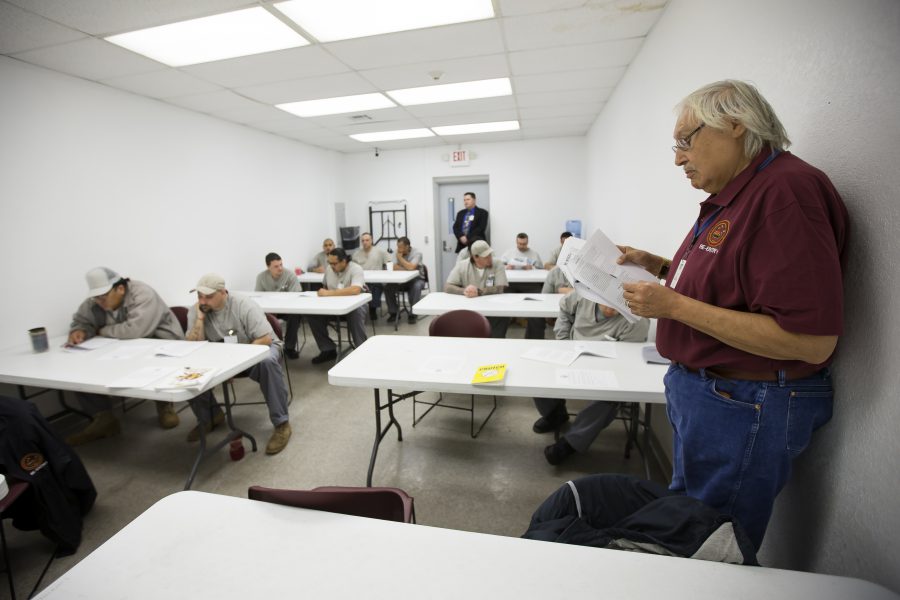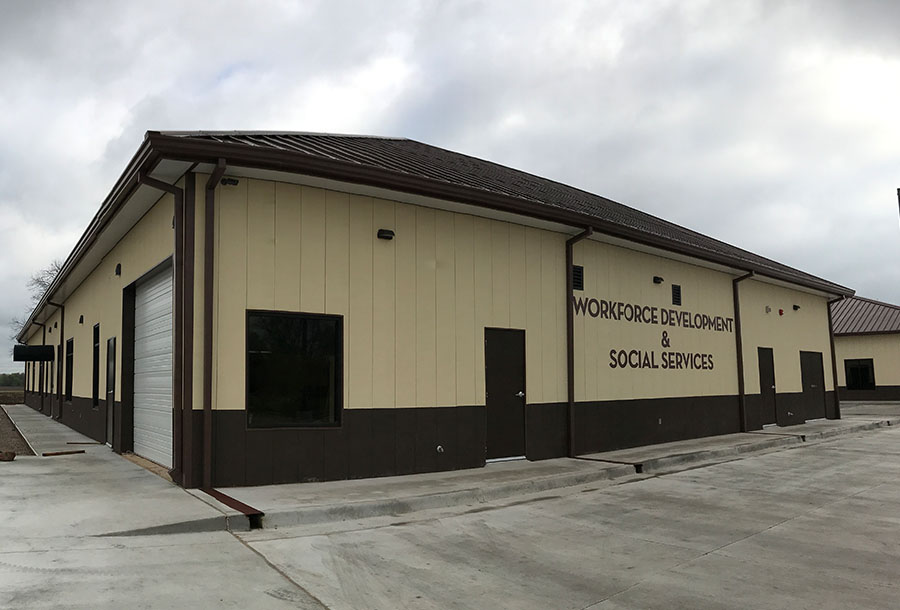This article was first printed in the July 2018 Hownikan as ‘As CPN’s Tribal Re-entry Program coordinator, Burt Patadal teaches the gift of self-sufficiency.’ Due to the release of hundreds of non-violent offenders in Oklahoma, it is being re-published here with edits and updated information.
Oklahoma released more than 450 inmates with newly commuted sentences at the beginning of November 2019 — the largest, single-day commutation in U.S. history. The releases came in an effort to reduce overcrowded prisons and fulfill state House Bill 1269.
Citizen Potawatomi Nation Workforce & Social Services offers its Tribal Re-entry Program to former inmates. It is available to members of federally recognized tribes located within the program’s service area — Pottawatomie, Cleveland, Lincoln, Seminole and Payne counties as well as part of Oklahoma County. The department welcomes those eligible to apply.

“Any Indian that wants to come in our program and go through our employment training or intense counseling or diversionary or re-entry programs — we’ll help them out,” said Burt Patadal, Re-entry and Diversionary Lead Counselor. “If they want to be happy, we can help them.”
He coordinates the program launched six years ago with the support of a U.S. Department of Justice grant.
“My program is about getting people to be self-sufficient, and my program is about Indians,” he said. “It’s about the reintegration into society after prison. … We talk about the way life is and how it pertains to the old way, our Native American ways.”
Patadal enters prisons and recruits candidates with a history of drug or alcohol addiction and works with them as they transition into freedom. The Tribal elder also acts as a sponsor to incarcerated Tribal Re-entry Program candidates.
“I’m in there helping because I want them to know that, when they step out from behind those prison walls, that I want them become self-sufficient,” he said. “I don’t ever want them to go back there, and I want them to know about being an Indian.”
Behind bars, he leads talking circles and sweat lodges, infusing pre-release treatment with Native teachings and traditions, giving them a sense of higher purpose and self-sufficiency. They continue post-release, too. Patadal has more than 25 years of sobriety of his own behind him.
“Burt is a diagnostician because he’s been there,” said Tribal Judge Philip D. Lujan, who oversees CPN’s Healing to Wellness Court. “Burt can listen — things can sneak in, and he notices if there may be a problem.”
Patadal can also help them find work; affordable housing; finish a GED, attend a vocational-tech school or go to college; and get them into substance abuse treatment and behavioral health counseling.

Once a client is established, the program can help with transportation, utilities, rent, work clothes, education and more.
“We try to get you on your feet. It takes commitment; you have to prove yourself. If you do good or if you want to do good work, you show me,” Patadal said. “Show me you’re working, and we’ll back you up all the way.”
In six years, less than five of nearly 350 participants who completed the Tribal Re-entry Program have returned to prison, Patadal said. That success is impressive — a comprehensive Bureau of Justice Statistics study conducted in 2005 showed that two-thirds of former U.S. inmates were arrested again within three years of their release and three-fourths within five years.
“I want them to know that you have to give it back,” he said of the Native American tradition of reciprocity. “If you take this experience and you use it to help other people, the Creator will always help you. You can’t be stingy in life.”
For more information about re-entry and other Workforce programs, visit cpn.news/workforce or call 405-878-3854. Applications are accepted at wssadmissions@potawatomi.org. Workforce & Social Services is located at 1549 Workforce Drive, Shawnee, OK 74801. Find job listings with the Citizen Potawatomi Nation anytime at firelakejobs.com.
